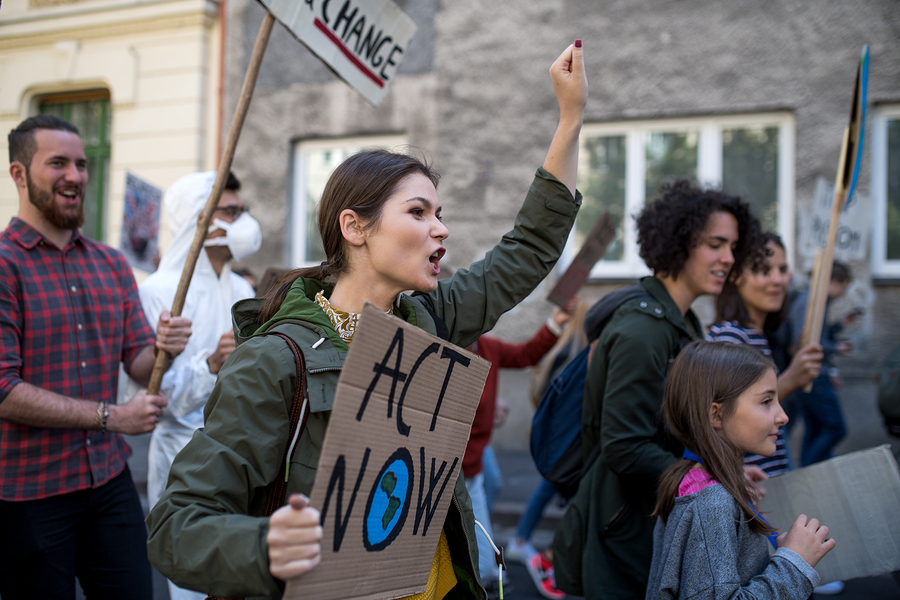Mar 26, 2020 | Discrimination, Employee Rights
 The coronavirus pandemic our country is going through right now is unprecedented – people are sick, people are dying, and everyone is scared. Different states are battling the coronavirus in different ways as businesses struggle to survive. Here in Denver, as of March 24, the mayor has declared a state of local disaster, pursuant to C.R.S. § 24-33.5-701, et seq., and ordered all individuals to STAY AT HOME and shelter in place. This means that all non-essential businesses should close, unless they can operate with employees from home and/or with appropriate “social distancing.” In particular:
The coronavirus pandemic our country is going through right now is unprecedented – people are sick, people are dying, and everyone is scared. Different states are battling the coronavirus in different ways as businesses struggle to survive. Here in Denver, as of March 24, the mayor has declared a state of local disaster, pursuant to C.R.S. § 24-33.5-701, et seq., and ordered all individuals to STAY AT HOME and shelter in place. This means that all non-essential businesses should close, unless they can operate with employees from home and/or with appropriate “social distancing.” In particular:
“All businesses with a facility in Denver, except Essential Businesses as defined below in Section 6, are required to cease all activities at facilities located within Denver, except Minimum Basic Operations, as defined in Section 6. For clarity, businesses may also continue operations consisting exclusively of employees or contractors performing activities at their own residences (e.g., working from home). All Essential Businesses are asked to remain open. To the greatest extent feasible, Essential Businesses shall comply with Social Distancing Requirements as defined in Section 6, below, including by maintaining six-foot social distancing for both employees and members of the public, including, but not limited to, when any customers are standing in line.”
March 22 CDPHE Order.[1]
If your business is one of those that will or can remain open, you may have some questions about your rights. First of all, you should understand that circumstances regarding the pandemic are changing as information becomes available and that this is new to everyone. Congress is expected to pass a bill to help both businesses and their employees, but new laws are likely to come in to effect.
Hopefully, you have a caring employer who is taking all the necessary precautions to keep their employees safe and to help you endure through this trying time. However, you may still have some questions and concerns about your rights and safety during this time.
Can my employer require me go to work during the coronavirus outbreak?
Unless you have a valid disability that qualifies under the Americans with Disabilities Act (ADA), your employer can require you to come in to work. If you have health concerns, the best thing you can do is provide notice by talking to them and communicating regarding your concerns and your particular condition. However, if your business is one that was mandated to close and your employer remains open, and then fires you because you refuse to go to work, you may have a case for wrongful termination in violation of public policy. Before doing anything, you should speak to your employer and communicate that you have good cause not to work because of a medical vulnerability you have and that you fear for your safety. If you make a good faith effort to resolve the situation and your employer still fires you, you can apply for unemployment and look into a wrongful termination lawsuit.
Can my employer require me to work if I need to care for a sick family member?
The Family Medical Leave Act (FMLA)[2] requires employers to provide eligible employees up to 12 workweeks of unpaid leave per year to care for yourself or family members, with continued health benefits. Employers must also allow employees to return to the same job (or one that is equivalent). See the Department of Labor website for all the eligibility requirements and details.
Is my employer required to provide safety equipment against the coronavirus?
There are OSHA (Occupational Safety and Health Administration) laws that protect you. The general duty clause from OSHA requires your employer to provide “a place of employment which (is) free from recognized hazards that are causing or are likely to cause death or serious physical harm to his employees.” Of course, your employer can’t eliminate the coronavirus from your workplace but it should make that environment as safe as reasonably possible. A lot of this will come down to them putting forth a “good faith effort” because safety equipment is in short supply at the moment. So, while a hospital is typically required to provide doctors and nurses with the masks, gowns, and even hazmat suits, a grocery store can get away with providing gloves and hand sanitizer if that is all they are able to get. However, in most cases, they shouldn’t prevent you from using additional safety equipment that you provide so long as it doesn’t interfere with your job.
Can I sue my employer if they require me to work and I get sick?
In most cases, probably not. Simply put, it is very difficult to prove how or where someone caught the coronavirus because, as of now, the virus hasn’t mutated very much. What that means is that most people who are sick in your area will have a very similar strain of the virus, so it’s next to impossible to trace. Remember, the burden of proof is on you to show that you not only caught the virus at work but that it was your employer’s fault.
However, if your employer knowingly puts you in a dangerous situation without required protection, or deliberately didn’t inform employees that they had been exposed, then you may have some recourse. Again, this entire situation is something the country and the courts haven’t dealt with much so there is a lot grey area to navigate. And the burden of proof will be still be on you.
I am Asian, Latino, African American, Caucasian, or a member of another race and my employer is treating me differently
Disparate treatment because of your race continues to be prohibited by Title VII of the Civil Rights Act of 1964 and is absolutely illegal. If you can prove that your employer has singled you out and treated you differently from the other employees — such as cutting your hours or making you wear a mask when no one else is required to — because of your race you may have a case for discrimination.
If I test positive for the coronavirus, can my employer tell the other employees?
No, your employer is required to maintain your privacy regarding any medical information. However, they can (and should) notify other employees that they may have been exposed to the coronavirus, or that there may otherwise be a health hazard, without disclosing your name.[3]
[1] See https://www.denvergov.org/content/denvergov/en/mayors-office/newsroom/2020/city-s-covid-19-response-update-and-stay-at-home-order.html
[2] The FMLA applies to all public agencies, including local, State, and Federal employers, and local education agencies (schools); and private sector employers who employ 50 or more employees for at least 20 workweeks in the current or preceding calendar year – including joint employers and successors of covered employers. If you are working for business with fewer than 50 employees, they are not required to offer FMLA benefits.
[3] For further legal advice on this issue, consult an attorney knowledgeable in federal and/or state privacy matters. Civil rights attorneys, such as the author of this article, are not experts in privacy law.
Feb 17, 2020 | Civil Rights Law, Constitutional Rights, Employee Rights
You may have heard the term “whistleblower,” but may not know what it means. Much like a referee in a sporting event, it’s someone who sees some type of illegal, unethical or other improper conduct by their employer, and “blows the whistle,” or alerts authorities or the press to the actions. And whistleblower protection is your right.

Who is a whistleblower?
Whistleblowers can be just about anyone, from a construction worker or foreman to an office clerk, a first responder or agency employee, a manager of any level, or a hospital employee from a janitor or orderly to department head or chief medical officer. The term applies to anyone who calls out improper conduct at work to a higher-level supervisor, a governing agency, the press, or other authority, in either the private or public sector.
Examples of a whistleblower include:
- A retail employee who becomes aware that another employee or manager is violating company policies, particularly in terms of the company’s funds
- A nursing home employee who notifies a state regulating agency about patient neglect, abuse, mistreatment or financial exploitation
- A construction worker who notifies a regulating agency about the lack of safety equipment or procedures on a job site
- An office worker who notifies a governing agency about funds and/or supplies that are missing or misappropriated
- A financial services professional who becomes aware of a client’s funds misappropriated by a colleague, “selling away” (selling products not represented by the firm) or convincing clients to purchase investments that are speculative and lead to potential client losses and reports them accordingly
Of course, these are just a few of the ways where someone can be a whistleblower. There can be any number of situations where the term can apply.
Many people may consider a whistleblower a hero. However, those identified don’t always see it that way. When improper conduct is exposed, there is a significant chance that retaliation against the whistleblower is a strong possibility. Fortunately, there are some protections available.
Colorado’s laws for whistleblower protection
The state offers protections for both public-sector and private-sector employees who highlight such actions. Colorado is an at-will employment state, but there are protections for whistleblowers in the case of wrongful termination and other retaliatory measures.
The first is Colorado Revised Statutes Section 24-50.5-103, which protects public employees who disclose information in the public interest, so long as it is true and not confidential. To report retaliation, the employee must file a report within 30 days of the incident.
The second is Colorado Revised Statutes Section 24-114-102, which protects private employees. In this case, the employee must attempt to provide their information to a supervisor or another internal division before providing it to an outside authority or agency. A private employee can also file a civil lawsuit after unlawful termination or other retaliation without first submitting to a formal complaint process. There is a two-year statute of limitations for filing such a lawsuit.
Federal whistleblower protection
The Whistleblower Protection Act of 1989 protects federal employees who expose corruption, waste, and illegal acts related to their employment. The law also protects them from retaliation such as pay cuts, demotions, transfers and terminations after reporting.
The NO FEAR Act of 2002 added training for federal managers and supervisors to discourage retaliation against whistleblowers. It is intended to “improve agency accountability for anti-discrimination and whistleblower laws.”
Sarbanes-Oxley Act (also of 2002) was also added to protect investors after a number of accounting scandals.
You can also file a federal complaint at the Office of Special Counsel’s website.
The SEC
In governing the financial services sector, the Securities and Exchange Commission (SEC) has its own whistleblower program. The SEC’s program also comes with financial incentives.
The agency has awarded over $300 million in awards since the beginning of the program in 2011. Many of these awards have been substantial, and have been awarded to those who uncover illegal or unethical activity in companies that handle investments.
You can learn more about the SEC’s own whistleblower program here.
Contact the Civil Rights Litigation Group in Denver, Colorado
“Blowing the whistle” on wrongdoing at work is a big step. Because of the complexities involved in this kind of action, it’s a good idea to speak with an employment law attorney before you do so. Retaliation is not uncommon, and is also against the law.
The Civil Rights Litigation Group is dedicated to protecting the rights of employee whistleblowers who are targeted with retaliation. If you find yourself fired or otherwise disciplined for whistleblowing, we can pursue lawsuit against you/ employers who have retaliated against employees, and will fight to get you compensation for your damages. For a free, no-obligation consultation with the Civil Rights Litigation Group, call our Denver CO law firm today at (720) 515-6165 or use our online contact form.
Jan 20, 2020 | Constitutional Rights

The First Amendment is known to protect what we call freedom of speech. It means that everyone has the right to express an opinion and be free from government censorship, regardless of who agrees with it.
But freedom of speech doesn’t just include the spoken word. In fact, freedom of speech and expression can take many non-verbal forms. These are known as symbolic speech, actions that express specific ideas.
What is symbolic speech?
Non-verbal, or symbolic speech, is an action that clearly conveys a specific message to anyone who sees and/or reads it. Symbolic speech can take the form of:
- Public protests, such as sit-ins and marches
- Demonstrations
- Wearing buttons, armbands, or other clothing items (such as t-shirts) that deliver a protest or other specific message
- Nudity
- Flag waving
- Flag burning
- Burning draft cards
The government must have an important reason and prove to a court that the message isn’t protected speech if they want to punish you. Government disapproval cannot be the reason. But like fighting words, not everything is protected speech.
The limits on symbolic speech
Freedom of speech does not mean that you can say whatever you want without consequences. The fighting words doctrine includes speech or words that intentionally incite violence or cause distress and are not protected. Slander (lying), obscenity, child pornography, and obscene gestures are also not protected as free speech or symbolic speech.
Two examples of symbolic speech
During the Vietnam War, students at two Iowa schools decided to wear black armbands to school as a silent protest to the war. Once the principals discovered the plan, they warned students that anyone wearing the armbands would be suspended. Three students were suspended as a result. Parents of these children sued, and the U.S. District Court sided with the school. The students lost on appeal so they took the case to the Supreme Court.
In Tinker v. Des Moines Independent Community School District, the Court decided that students had the right to symbolic speech at school. However, in this instance, the school was correct in prohibiting them to avoid disrupting learning at the school, and they had the right to do so.
Another famous example of symbolic speech is the case of Texas v. Johnson, in which a man burned an American flag outside of the 1984 Republican National Convention in Dallas, Texas. He chose to burn it there, where Ronald Reagan was about to receive the nomination for president, as a protest. He soaked a flag in kerosene and set it on fire. He was immediately arrested for violating a Texas state law prohibiting the burning or desecration of an American flag. He served a year in jail and paid a fine.
The Texas Court of Criminal Appeals is the state’s highest appeals court for criminal cases. They argued that symbolic speech was protected by the First Amendment, and overturned his conviction. This led the way to a Supreme Court hearing the case in June 1989 that produced a controversial 5-4 ruling that burning the flag is protected symbolic speech. The justices called it a bedrock principle that the government could not just prohibit an expression of speech just because society finds it offensive.
The First Amendment protects your right to freedom of speech
If someone has threatened your right to free or symbolic speech, you can fight back. Call the Civil Rights Litigation Group at (720) 515-6165, or use our online contact form, to schedule your free consultation with us today. We understand civil rights cases, and can help you protect your rights.
Call us at 720-515-6165
Related posts:
Free speech and the First Amendment
Hate speech, the First Amendment and social media posts — what you should know
Dec 23, 2019 | Civil Rights Law

A car accident. A fatal slip-and-fall. A preventable accident at a workplace. Medical mistakes or preventable hospital-borne infections. A crime that didn’t have to happen if adequate lighting or security were available. A badly made or designed product that causes a death, including medical devices. All of these can lead to a wrongful death, or the unnecessary death of an individual through negligence. This can leave grieving families with serious financial difficulties if the deceased is the family’s provider.
Colorado allows wrongful death suits to be filed on behalf of a deceased person, for the compensation he or she might have been able to recover as if they were still alive.
Several factors are involved when a person dies at the hands of another. Depending on the circumstances, it may be possible to recover damages from the responsible party through a lawsuit, known as “wrongful death.”
The permitted parties
In Colorado, it’s possible to recover damages in a wrongful death lawsuit, but there are limits on who can file one, depending on the individual’s status. The Colorado Wrongful Death Act details these individuals:
- For the first year after the death, only the deceased’s spouse may file
- If the spouse does not file after the first year (or there isn’t one), any surviving children can file, as well as the spouse
- If the decedent has no surviving spouse and/or children, the deceased’s parents can file
- Anyone who would have been a beneficiary and lost an inheritance as a result of the wrongful death can file
- A representative of the deceased’s estate may also file
Relatives such as siblings, nieces and nephews aren’t permitted to file a lawsuit unless they were previously a designated beneficiary or would have been a beneficiary.
Proving wrongful death
If the wrongful death is the result of a criminal act, there will be two parts to the equation: a criminal case and a civil case. The criminal case is brought by the state, and the civil case is brought by a spouse, children, parents, or other qualified individual.
In order to prove that the individual’s negligence is responsible for the death, you’ll need to prove it with “preponderance of evidence.” This demonstrates that the defendant is more than likely than not guilty of negligence that caused the wrongful death.
Available compensation
Once a death is proven to be wrongful or negligent, the plaintiff can request:
- Medical, expenses, including hospital and emergency room charges.
- Funeral and burial expenses
- Lost wages, future wages, any financial benefits or anticipated inheritances (such as life insurance policy payouts)
- Punitive (“punishment”) damages to make an example of the defendant and discourage other individuals from doing the same thing
- Loss of companionship from the deceased person
- Any other accident/injury related expenses
Qualified parties have a two-year statute of limitations on filing a wrongful death lawsuit. That’s why it’s important to find a personal injury attorney who understands wrongful death laws to have the best possible outcome, and begin working with them as soon as possible.
Wrongful death attorney in Denver, Colorado
The death of a loved one is always difficult. But knowing that someone else’s negligence caused a needless death makes it even worse.
If you believe your loved one’s death was negligent as well as preventable, call the Civil Rights Litigation Group at (720) 515-6165, or use our online contact form, to schedule your free consultation with us today.
Nov 18, 2019 | Employee Rights
The Americans with Disabilities Act of 1990 prohibits disability discrimination against an individual based on their disability. The idea was to ensure that Americans with disabilities would have the same rights as everyone else. This includes all aspects of employment, including hiring, firing, promotions, and job duties, and applies to businesses with 15 or more employees.

The Colorado Civil Rights Act further refines the rights of the disabled, prohibiting discrimination, and applies to businesses with two or more employees.
Reasonable accommodation
If you find yourself disabled while working, you can notify your employer of your disability, and request a reasonable accommodation. The company is required under the ADA to provide reasonable accommodation, as long as it does not impose an undue hardship on the employer. Otherwise, they are guilty of disability discrimination.
This reasonable accommodation would be provided to an otherwise qualified disabled employee, and would enable him or her to enjoy the same benefits and have the same level of performance as a non-disabled employee. The accommodations may not be exactly what the employee requested, but may be enough for the employee to continue working at a similar level than before.
These accommodations can include:
- Changing the employee’s work schedule
- Restructuring of the employee’s job
- Increasing accessibility to disabled employees
- Reassigning the employee to a currently vacant position
- Providing qualified readers and/or interpreters
- Modifying or obtaining equipment or devices
- Modifying or obtaining policies, training manuals, or exams
Once the employee requests an accommodation, the employer’s duty to provide one is initiated. Both the worker and the employer should have a conversation on exactly what the employee needs to continue working.
When the employer refuses to address disability discrimination
Because the ADA requires an employer to provide a reasonable accommodation to a qualified individual with a disability, refusing to accommodate a disabled employee may be able to create a claim for disability discrimination under the ADA. The accommodation is requested so that the disabled individual will be able to continue his or her employment as if they were not disabled, or as closely as they can.
The first step is to try to resolve the issue internally, within the company. Having a discussion with your supervisor or manager may be all it takes to resolve the issue. If your direct supervisor refuses, or is unaware of the requirement, a conversation with HR may be your next step. If that doesn’t help, you may have to file an internal complaint within the company. This will give the company a chance to remedy the problem. If they don’t, and you do end up filing suit, it will go a long way in demonstrating to the court that you gave the company adequate opportunity to correct the problem and provide an accommodation.
Should a company complaint not resolve the problem, the first step is to file a discrimination charge with the EEOC in order to preserve your right to file a lawsuit later. Once the EEOC has completed its investigation, it will issue a right-to-sue letter. You will then be cleared to file your lawsuit.
The EEOC has a web page with some facts about the ADA.
Your Denver disability discrimination attorney
Dealing with a disability is difficult enough. Working for an employer who doesn’t respect you as a valued member of the company because of your disability can make things even worse. You don’t have to be a victim against ridiculous discrimination tactics.
Call the Civil Rights Litigation Group at (720) 515-6165, or use our online contact form, to schedule your free consultation with us today. We’ll aggressively fight for you in court and make sure your rights are protected and you are treated fairly.
 The coronavirus pandemic our country is going through right now is unprecedented – people are sick, people are dying, and everyone is scared. Different states are battling the coronavirus in different ways as businesses struggle to survive. Here in Denver, as of March 24, the mayor has declared a state of local disaster, pursuant to C.R.S. § 24-33.5-701, et seq., and ordered all individuals to STAY AT HOME and shelter in place. This means that all non-essential businesses should close, unless they can operate with employees from home and/or with appropriate “social distancing.” In particular:
The coronavirus pandemic our country is going through right now is unprecedented – people are sick, people are dying, and everyone is scared. Different states are battling the coronavirus in different ways as businesses struggle to survive. Here in Denver, as of March 24, the mayor has declared a state of local disaster, pursuant to C.R.S. § 24-33.5-701, et seq., and ordered all individuals to STAY AT HOME and shelter in place. This means that all non-essential businesses should close, unless they can operate with employees from home and/or with appropriate “social distancing.” In particular:




